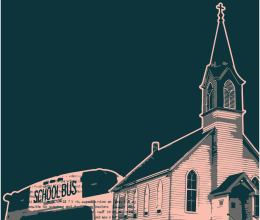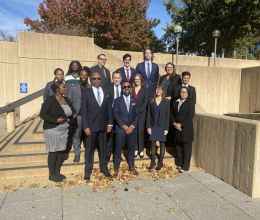
Kellyville, OK—You would be excused for not associating a high school prom with the First Amendment, but when Kellyville Public School officials recently told a student he would be denied attendance to prom if he wore a kilt, they turned a high school rite of passage into a teaching moment about the Constitution and protected speech. After visiting with the student’s father, the American Civil Liberties Union of Oklahoma sent a letter to Kellyville High School. Shortly after receiving the ACLU of Oklahoma’s letter, school officials withdrew the prohibition and the student successfully exercised his freedom of expression at his prom.
This incident is just one of many similar battles fought at the intersection between schools’ attempts to enforce discipline and the protection of students’ constitutional rights. The U.S Supreme Court has recognized that clothing—even student clothing—is a form of expression entitled to full protection of the First Amendment of the United States Constitution. And it has long held that students “do not shed their constitutional rights to freedom of speech or expression at the schoolhouse gate.” Even when the speech occurs in a traditional school setting like a classroom—as opposed to the more free and open social environment of a dance—school officials must still prove that the forbidden conduct would substantially interfere with the operation of the school or would impinge upon the rights of other students.
While the enforcement of a dress code does not automatically violate students’ constitutional rights, school officials must apply a dress code in accordance with the U.S. and Oklahoma Constitutions. In the case of Kellyville High School, kilts are not offensive to the school’s dress code and had been allowed at school events in the past. The ACLU of Oklahoma argued that it was “difficult to perceive how a kilt might substantially interfere with the operation of a school classroom, let alone a school dance.”
While the wearing of a kilt may seem like a minor issue in the grander scheme of civil liberties, the ACLU of Oklahoma believes such issues present an opportunity for students to learn the invaluable lesson of standing up for their rights. The ACLU of Oklahoma closed its letter to Kellyville Public Schools by encouraging the administration to let students exercise their protected rights to the extent provided by law, stating that “doing so would not only teach students the value of their speech, but would set an appropriate example of respect for the law and for the civil rights of others.”



